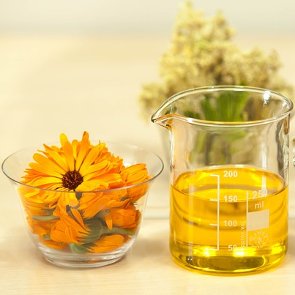6 Tips for Taking Care of Problem Skin
 A lot of people go through a problem skin phase during there teenage years, and some never actually grow out of it. Problem skin is prone to breakouts, blemishes, blackheads, acne, and oily complexion. If you want to keep your problem skin blemish-free and healthy, you need to make sure that your skincare routine is right. Here are some tips for taking care of problem skin.
A lot of people go through a problem skin phase during there teenage years, and some never actually grow out of it. Problem skin is prone to breakouts, blemishes, blackheads, acne, and oily complexion. If you want to keep your problem skin blemish-free and healthy, you need to make sure that your skincare routine is right. Here are some tips for taking care of problem skin.Cleanse, Cleanse, Cleanse
Cleansing is an essential part of any skincare routine, but it is especially important for problem skin because dirt, grime, dead cells and excess oil contribute to breakouts. Cleansing your face at least twice a day is a simple way to keep your skin in check. Foaming facial cleansers are a better choice for oily skin than lotions or cream-based cleansers. To combat acne, choose a cleanser specially formulated to clear acne sores and prevent acne scars.
Some people whose skin is oily in the T-zone or all over the face tend to over-cleanse, which is a mistake. Cleansing your skin too often can strip it off moisture. The skin will start producing more sebum to compensate, quickly becoming even more oily than it was before cleansing. So don’t use harsh cleansers, don’t scrub your face too hard, and don’t wash your face more often than necessary.
Opt for a Light Moisturizer
All skin types, including oily and problem skin, need hydration. However, there’s a reason why there are different kinds of moisturizers for specific skin types. Problem skin needs a light, non-comedogenic moisturizer that doesn’t clog pores. The best option for this skin type is an oil-free, water-based moisturizer with antibacterial agents that provides the skin with moisture and simultaneously combats pathogenic microbes that cause acne. By the way, pure aloe vera gel can be a great alternative to store-bought moisturizers. In addition to hydration, it soothes the skin and helps eliminate bacteria.
Exfoliate Only When You Really Need It
It is usually recommended to exfoliate once or twice a week, but this advice doesn’t always work for problem skin. If you have acne, mechanical exfoliation (in other words, scrubbing your face) may cause pimples to rupture, and you definitely don’t want this to happen. You need to be able to recognize when it is safe and really necessary to exfoliate.
Never, Ever Pop Pimples
Some people just can’t help popping pimples, but it never helps get rid of acne. As a matter of fact, it only makes matters worse. Picking drives the infection deeper into the skin and leads to further inflammation, swelling, redness, and even scarring. Oh, and stop touching your face! It can spread bacteria that cause acne and make your breakouts even worse. Always wash your hands before touching your face, keep your makeup tools clean, and make sure your phone doesn’t touch your face when you talk.
Use Acne Treatments
Instead of popping your pimples to get rid of them, use special treatments that eliminate bacteria, reduce inflammation, soothe the skin, tighten enlarged pores, and normalize sebum secretion. Common ingredients that can be found in anti-acne skincare products include retinoids, salicylic acid, alpha-hydroxy acids (AHAs), and benzoyl peroxide.
See a Physician
If acne doesn’t go away no matter what you do (or don’t do) to your skin, you may need to see a doctor. Acne can be caused by a number of causes, including hormonal problems, and figuring out the cause is the first step to solving the problem. Sometimes the right diet and over-the-counter acne treatments are enough to clear up your face, but sometimes physicians prescribe antibiotics, oral contraceptives or other drugs, depending on the exact cause of the skin disorder.
Breadcrumbs
Filters
- Face
Tags
Related Articles
- 6 Tips to Shrink Your Pores, 5 Non-Comedogenic Oils for Skin Care, 4 Benefits and Uses of Tea Tree Oil for Your Skin, 5 Tips to Get Rid Of and Prevent Blackheads